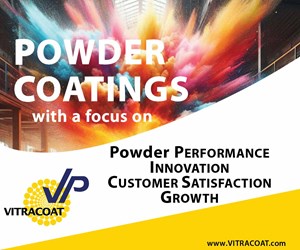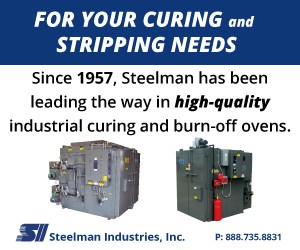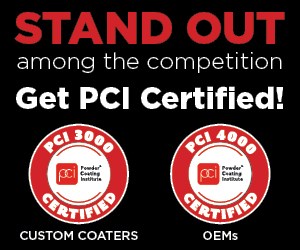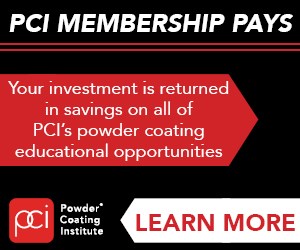Powder Compared to Polyurethane
We currently use a liquid polyurethane paint on aluminum panels but are considering converting to powder paint. What are the advantages and disadvantages of going with powder vs. polyurethane? We also are considering running some of our panels in cold rolled steel (CRS). Will powder adhere differently on aluminum or CRS? What challenges should we consider?
Q. We currently use a liquid polyurethane paint on aluminum panels but are considering converting to powder paint. What are the advantages and disadvantages of going with powder vs. polyurethane? We also are considering running some of our panels in cold rolled steel (CRS). Will powder adhere differently on aluminum or CRS? What challenges should we consider? L.M.
A. A high-quality liquid polyurethane paint can provide excellent performance and appearance. Since you are using this type of paint, I assume that your panels are used in outdoor applications that need protection from sunlight. You will therefore want to look at polyester chemistry for the powder also. There are some advantages of powder over the liquid coating:
No mixing. The powder comes ready to spray, eliminating the need to blend liquid paint components.
Easy clean up. The equipment has to be blown down or wiped down; there is no need to clean hardened paint or loaded filters.
Easy application. None of the defects associated with liquid flow (runs, drips sags); requires less training.
No catalyst. Once it has been blended, a plural-component liquid coating must be used or disposed of.
No emissions. There are no solvents in the powder, so there are no hazardous air pollutants emitted during application or cure.
No hazardous waste. Powder can be recycled and reused; if you do have powder waste, there are ways to dispose of it as non-hazardous waste.
Lower exhaust rates. Higher oven-exhaust rates are required for liquid paint.
No booth exhaust. Containment air in the booth is discharged back into the plant through a filter and does need to be exhausted to the atmosphere. This saves considerable energy compared to a large volume of tempered supply air needed for liquid paint.
Easier compliance. Powder does not have as much regulation or restriction on use and reporting.
While powder is a great option over liquid coating, you should be aware that adhesion and long-term performance are closely related to the quality of surface preparation. Powder is not tolerant of oil or other surface contamination. Liquid coating also depends heavily on proper surface preparation, but it has solvency, so some minor issues may not be as much of a problem. Also be aware that the powder cure temperature requirement is typically around 350 to 400°F, while two-component polyurethane is around 180°F.
As for aluminum vs. CRS, the key is pretreatment. Aluminum should be treated with an aluminum conversion coating (chrome or non-chrome). CRS should be treated with a conversion coating also, but iron phosphate, zinc phosphate or a transitional metal (zirconium oxide) coating are suitable for CRS. Be sure that the combination of pretreatment and coating will provide the needed performance. That may mean you need a primer for longer corrosion resistance in outdoor environments.
Related Content
-
Adjusting Current and Voltage When Powder Coating
Which manual powder coating gun setting is better to adjust, voltage or current? Jeff Hale of Gema USA discusses when to use different settings on your powder gun to achieve optimal results.
-
Powder Coating 4.0: Smarter, Faster, More Efficient and Connected
New tools reduce cost and waste, lower manufacturing footprint of powder coating operations.
-
An Altruistic Growth Strategy Puts People First
Professional Plating emphasizes investing in its team and fostering a supportive environment on the shop floor.












.jpg;maxWidth=300;quality=90)
